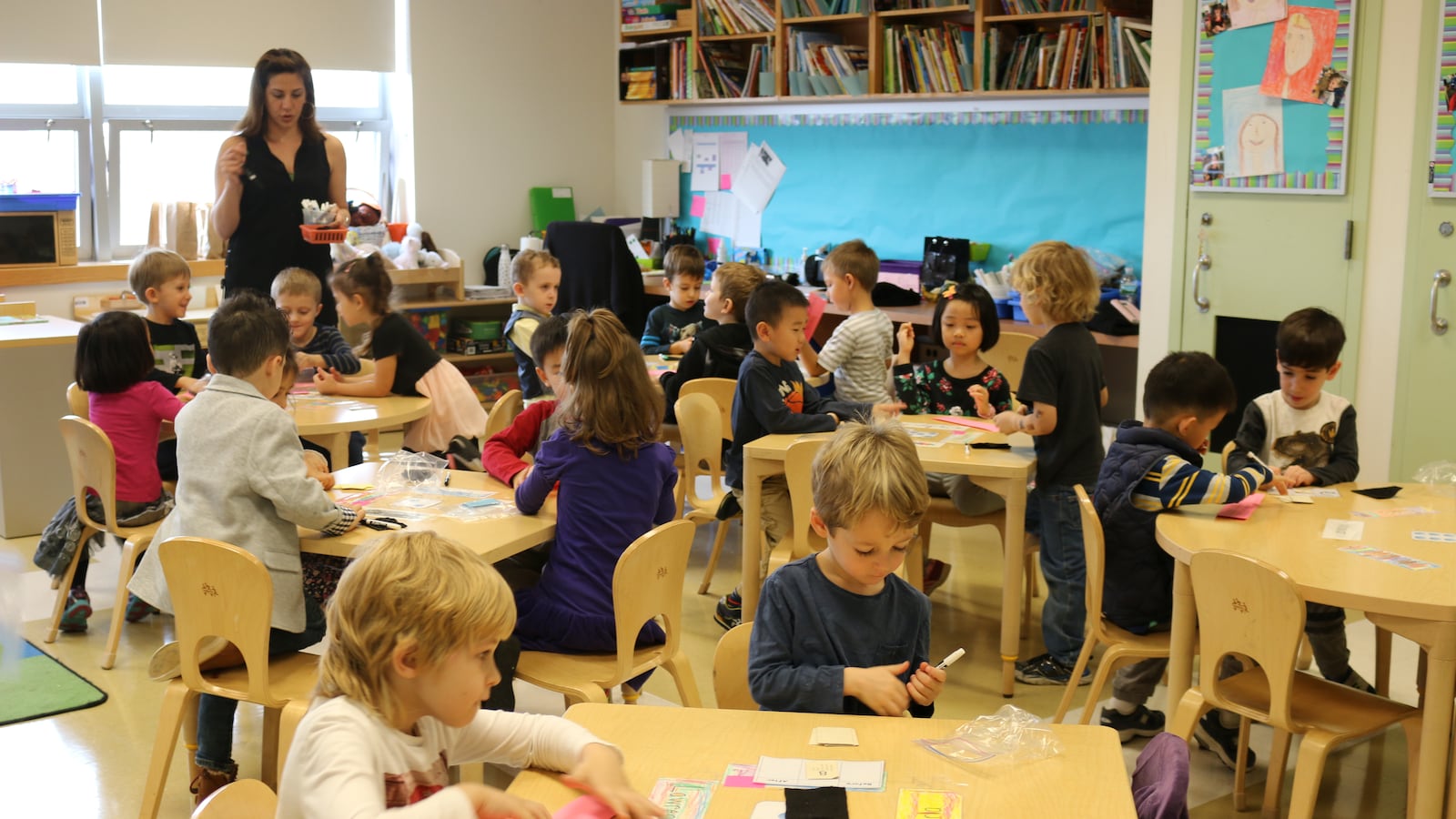Fewer schools in an initiative designed to diversify gifted and talented programs met their targets for offering seats to certain underrepresented communities of students, new city data shows.
Numbers released Friday show that out of seven programs, just three — at P.S. 77 Lower Lab School, Tag Young Scholars, and Brooklyn School of Inquiry — met their goals for enrolling kindergarten or first-grade students who qualify for free and reduced lunch, are learning English for the first time, don’t have stable housing, or live in public housing.
Last year, five of six schools met targets. And like last year, the goals are relatively modest. For example, P.S. 77 met its goal by making offers to just six students who qualify for free and reduced price lunch out of a total 50 offers, the data shows.
Families learned Friday whether their children received an offer to the city’s gifted programs. In total, 3,719 families received offers, education officials said. A total 5,749 students submitted a gifted-and-talented application, about 1,000 fewer students than in 2018.
Officials attributed that drop to just over 1,000 fewer eligible students entering grades 1 to 3 this school year. There were 2,878 applications for those grades, compared to 3,697 in 2018. For kindergarten, 2,871 students applied versus 3,036 last year. It will still be important to note how many students actually enroll in the programs.
“We’re excited for all families receiving a Gifted and Talented offer today, and look forward to welcoming them into the classroom this fall,” said Doug Cohen, education department spokesman, in a statement.
Targets weren’t met at four other programs in the small diversity program, located at three schools, P.S. 10, P.S. 11, and P.S. 15, because they didn’t have enough applicants from the high-need groups, Cohen said. Three are for kindergarten, while one is for first grade.
The biggest miss was at P.S. 15 on the Lower East Side, where the goal was for 65% of offers to go to students from underrepresented groups. But just 18% of offers — about three — went to such applicants.
Accessibility to gifted and talented programs has been a focal point in the debate over diversifying the city’s specialized high schools. Many families that oppose Mayor Bill de Blasio’s plan to scrap the exam that solely governs admissions to the schools argue that broader access to gifted and talented programs earlier in children’s education would help more black and Hispanic students gain admission. At present, these students represent just 10% of enrollment offers at the specialized high schools.
Others believe that any academic screen, especially one employed as early as Kindergarten, only compounds a sorting mechanism that works to lock in advantages that some affluent or savvy families bring to the complicated, competitive process. Many of the poorest districts have the fewest gifted applicants, while some of the most affluent districts have the most.
Starting in 2015, former schools chancellor Carmen Fariña launched the pilot program Diversity in Admissions, part of which is designed to increase the number of high-needs students in the city’s gifted programs. The gifted portion of the initiative includes six schools that run a total of seven programs.
Although fewer students were admitted to gifted programs this year, those who were may be happier with their choices. Thirty-four percent of families received an offer to their top-choice program, compared to 29% in 2018; 54% received an offer to one of their top three choices, compared to 47% the year before, and nearly two thirds of students received a welcome to at least one gifted program, compared to 57% in 2018.

